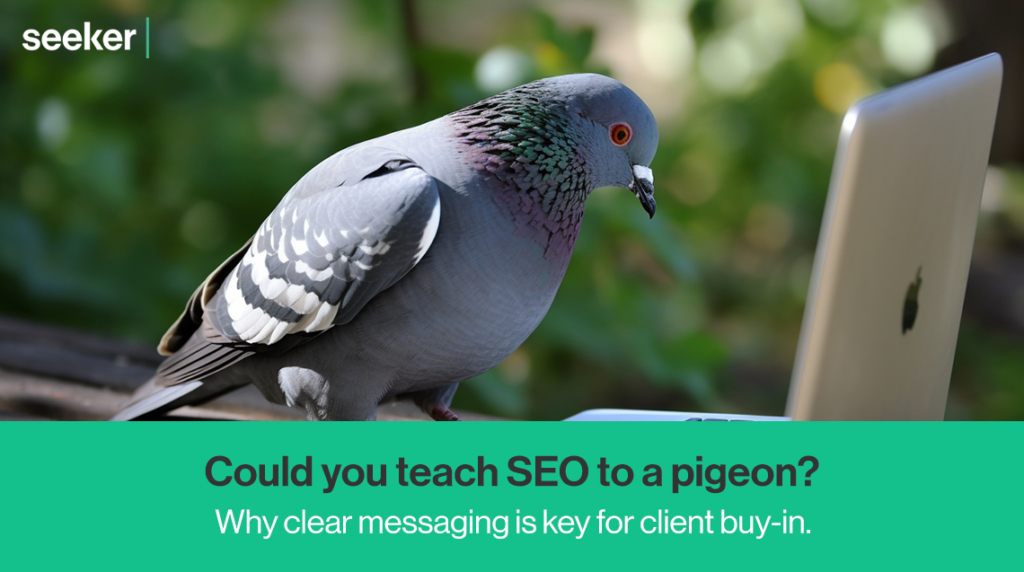
It’s one of life’s biggest questions.
Maybe circumstances demand it, or maybe you just feel like attempting a feat: either way, you’re tasked with showing a pigeon what SEO is all about.
What’s your move?
I asked our head honcho Gareth since I know he enjoys a challenge. Here’s how it went down:
 |
“How would I teach SEO to a pigeon? What do pigeons like to eat? Chips?” |
| Greggs sausage rolls. | |
 |
“Yeah, which one’s better? Chip or Greggs sausage roll?” |
| I’d take a Greggs sausage roll, really. | |
 |
“I’ll go with chips. A pigeon would understand the language of chips. I’d place a handful of chips quite near the pigeon and point it towards a whole package of chips down the road. It could take the easy chips, or it could hop along and have all the chips it could eat. It wouldn’t work, I think; pigeons don’t seem that smart. But who knows?” |
Works for me! I’ll keep the sausage rolls.
If SEO clients don’t get it, you haven’t given it
This isn’t really about pigeons. After all, statistics suggest you’re unlikely to ever have a pigeon client.
It’s about messaging. Because the work you do as an SEO isn’t the only thing that matters. How you explain it, sell it, and report it — these things are just as important. Maybe more so.
If there’s a handful of chips near you and someone is incoherently trying to tell you why you should forget about them, you’ll think they’re unhinged. You’ll take the easy chips, and they’ll have failed both you and themselves.
As SEOs, we don’t get the luxury of blaming our clients for undervaluing or not getting what we do.
Yes, value attribution is hard. Yes, the industry is ever-changing. Yes, you can’t force someone to listen.
But any client worth having is open to new approaches and ways of doing things. So don’t take it on faith that they’ll get it. Show them what’s to get.
Use the raw power of honesty
Plenty of digital agencies of all stripes like to get creative with their claims. Particularly so when they’re steering prospects from alternative methods.
They say their tactics are sure-fire hits incapable of failure, while those of their competitors are rotten to the core.
There’s just one problem with that, of course: their disingenuousness is almost impossible to miss.
And if you’ll exaggerate about one thing, how can people believe anything you say?
Sure, as an SEO, it hurts to admit targeting the wrong keyword, or building a duff link, or simply not having the solution to any and every problem.
We get so much undeserved pushback and doubt that it makes us defensive, always looking out for gotcha moments. It’s understandable.
But you must invest in openness and authenticity. It’s the only way to build long-lasting client relationships.
So acknowledge, as you pitch, that PPC isn’t the enemy: it’s a situational tool with merits of its own.
Explain that you can’t guarantee specific results, and that there will be ups and downs.
Clearly state that even the best SEO takes time to build up momentum.
And then?
Exceed their expectations.
